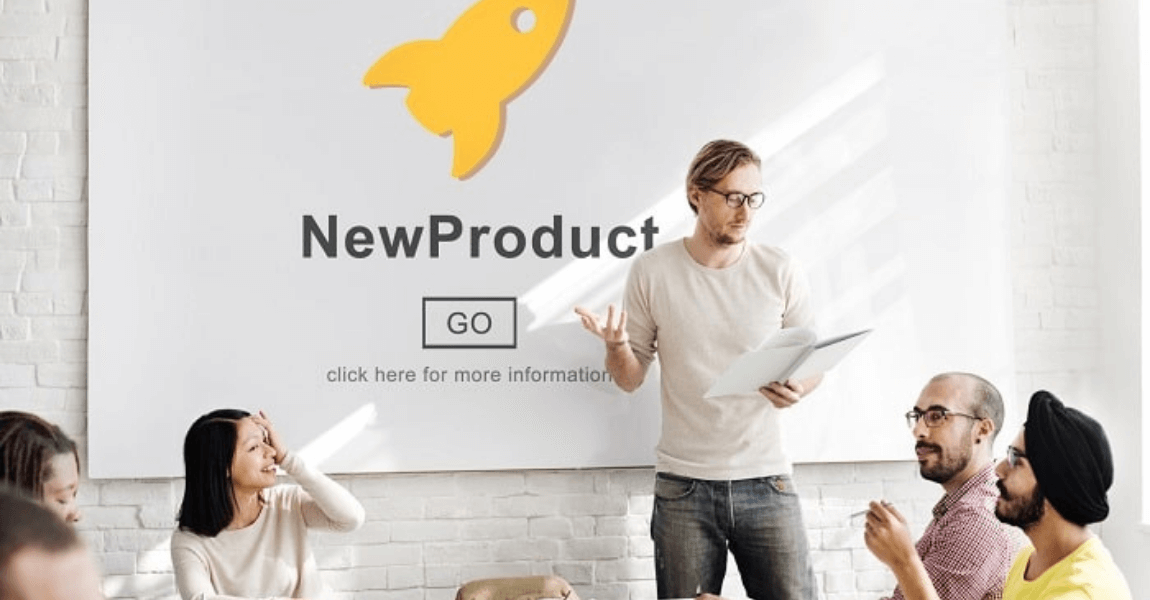With the increasingly fierce competition in the market, almost all practitioners in the promotional products industry know that the only way to stand firm in the market is to keep developing new products. But, how do get the new product ideas? How can we find the right manufacturer to make samples and produce them?
Our original intention of writing this article is to provide you with a complete idea and process of how to design a new product, how to proofread it. If your company intends to develop new products, I believe this article will provide great help. Usually, new products are generally divided into the following four steps from the concept stage to the real market sales.

Step 1. How to get ideas for new products
In fact, I think how to get ideas for new products is probably the hardest part of the whole process. In most cases, the new idea comes in two ways. The first way is to create a product that does not exist in the current market at all. It needs to have not only an eye-catching product appearance that is memorable. At the same time, it is also desirable to have some practical functions. But according to my personal experience, to achieve such a goal, in addition to the need for keen market insight, but also requires a certain degree of design ability, product application knowledge, and material control ability. In short, it is really a tedious and huge project, and generally, only the well-known companies in the industry have such strength. Because it's not easy to create a new product, it will not only cost more money, but also take more time to experiment with your idea, and you also need to worry about whether consumers like it before the hot sale. So, if you have a limited budget for developing new products, I suggest you consider the second approach.
The second way is to improve products on the basis of existing ones. For example, add new functions or modify the appearance, which will save you a lot of time and cost. Personally, I think this approach is perfect for small start-ups At present, those who do well on Amazon mostly sell such improved products. However, it should be noted that the margin of this type of new product is not as high as that of the brand new one. In addition, when modifying products, you need to pay special attention to avoid patent infringement.

Step 2. Find the right supplier for proofing and production
You may be confused about this, the right supplier? Shouldn't I go directly to the factory for prototyping or production? My suggestion is that if your product structure is relatively simple and you don't need to purchase a large number of accessories for complex assemble, then, obviously the factory is more suitable for you. But, if your product needs many different accessories, or you have higher requirements for the packaging of the product, then all the more reason for you to find a trading company to help you with this development project. In addition, the following three points will be important factors for you to measure the suitability of suppliers:
Price
a professional supplier often does not rely on low prices to win orders.
Sample
sample quality will usually determine the quality of mass production.
Communication
excellent suppliers tend to focus on your needs and provide their own professional opinions in the communication process to help you improve the products.
We have also uploaded 2 articles in our blog detailing how to determine if a promotional products supplier is professional or not? What is the difference between a trading company and a factory? Attached are the links to the articles as follows:

Step 3. Apply for the patent
In my opinion, you should apply for a patent for your products even before the samples are tested. If feasible, you should apply for a patent not only in the country where the product is sold but preferably also in China. In addition, whether you are working with a factory or a trading company, it is a good idea to sign a product confidentiality agreement with your supplier, clarify the responsibilities and obligations of both parties, and ask your supplier to protect your product design, packaging, and molds.

Step 4. Massive production
I would like to emphasize one point in particular if you believe that the sample does not meet expectations and needs to be improved. Then be sure to ask your supplier to re-sample before mass production, remember that this is the last procedure to control the quality of goods. It's finally time for mass production, and all your hard work and dedication will finally usher in the moment of harvest. But don't take it lightly, you should be concerned about more than just production schedules and delivery dates. No matter how smooth the previous process is, try to arrange for a third-party inspection company to inspect the goods before shipping.










